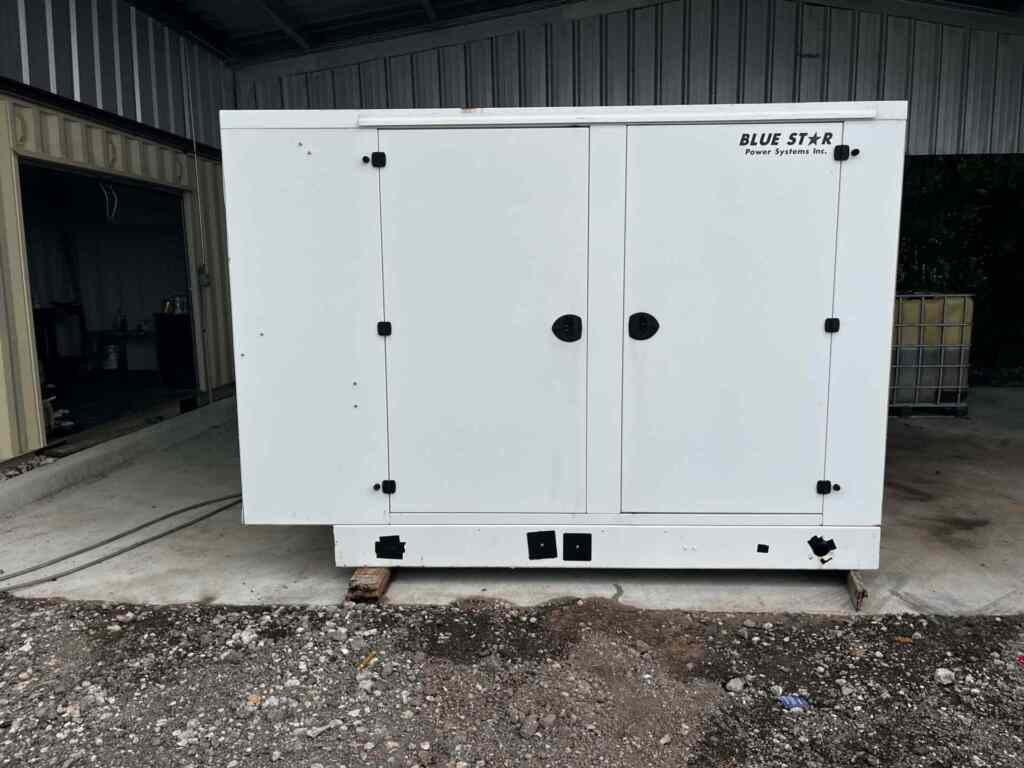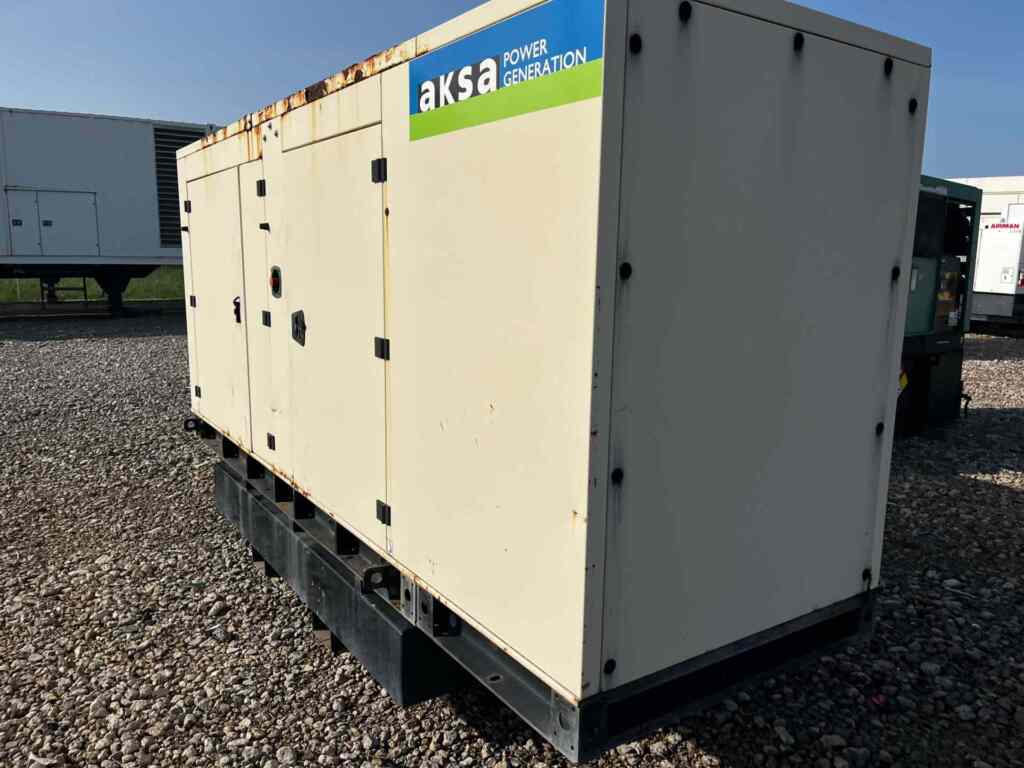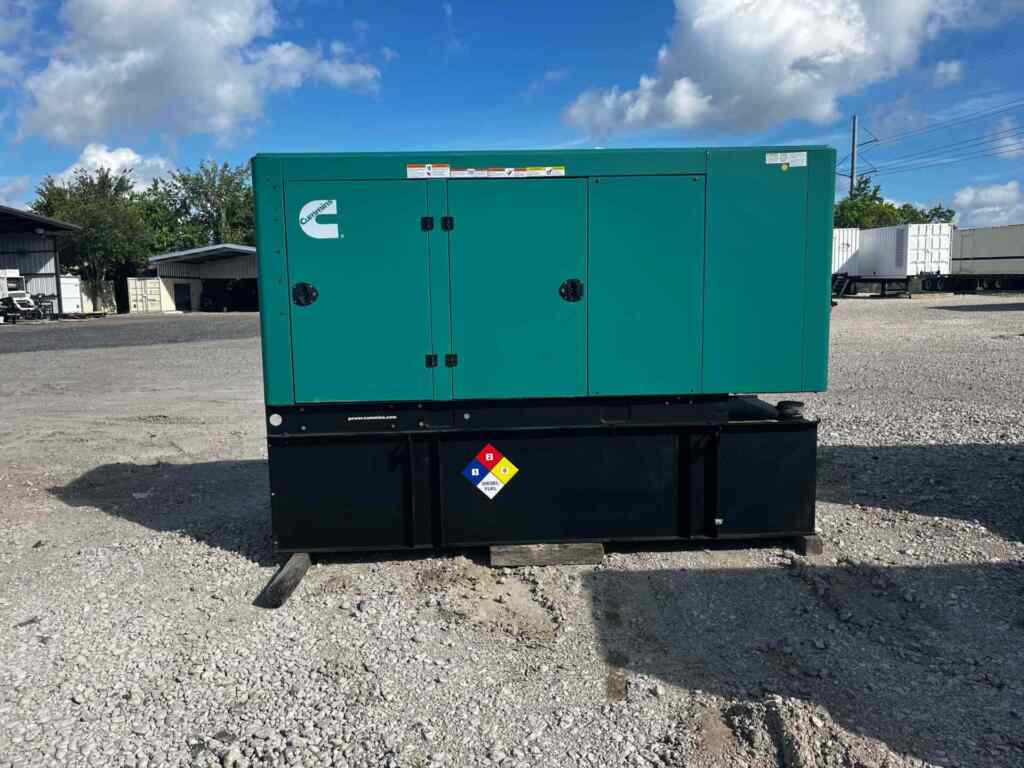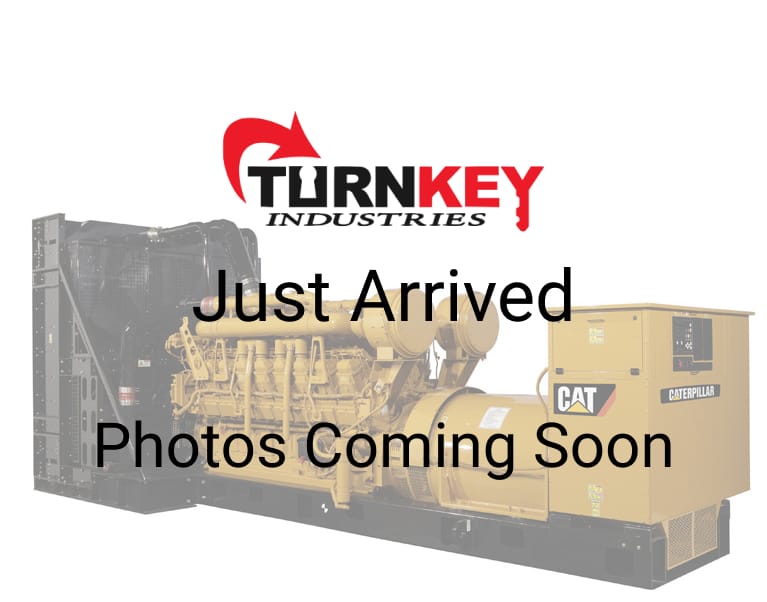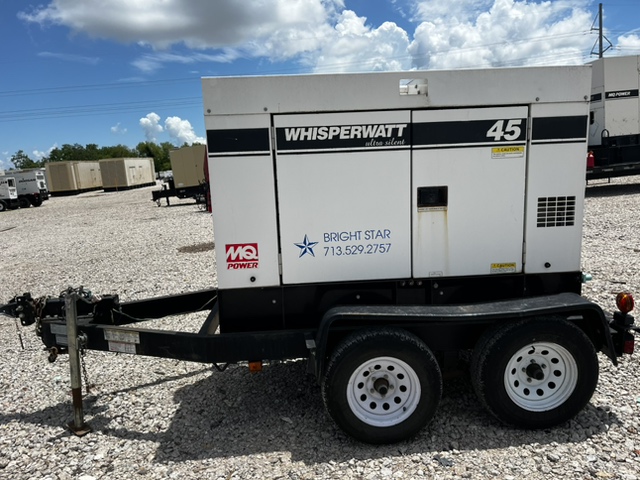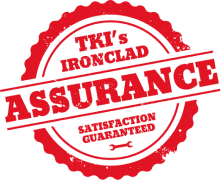Choose Turnkey Industries for Reliable and Efficient Construction Site Generators
At Turnkey Industries, we understand the critical role that uninterrupted power plays in construction site operations. That’s why we offer a wide range of high-quality industrial generators from the top generator brands in the industry. With our comprehensive selection, including renowned names like Caterpillar, Multiquip, Cummins, and Baldor, you can trust us to provide the perfect generator for your specific needs.
When it comes to the construction industry, power outages can lead to costly delays and hamper productivity. With Turnkey Industries, you can ensure an uninterrupted portable power supply and keep your operations running smoothly. Our generators are designed to deliver reliable and efficient power, even in demanding construction environments. From small-scale projects to large-scale constructions, we have the right generator to meet your requirements and keep constant power to your equipment.
Peace of Mind with Turnkey Industries’ Comprehensive Generator Selection
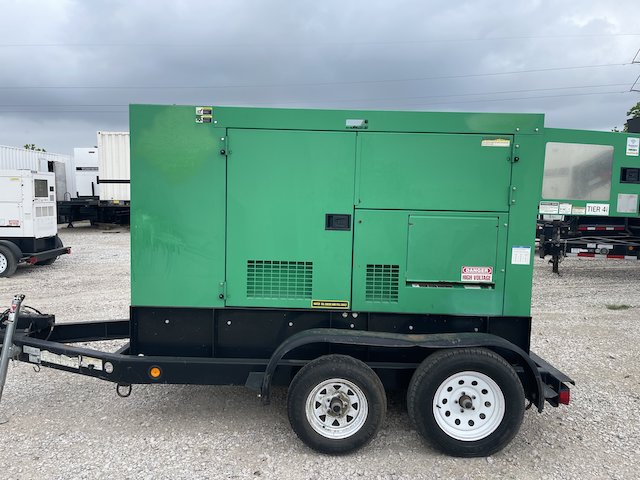 Choosing the right generator for your construction site shouldn’t be a hassle. Whether you need a 65kw generator or a 2000kw generator, Turnkey Industries simplifies the process with our extensive range of top-quality generators. Our team of industrial generator experts will guide you through the selection process, considering factors such as power output, fuel efficiency, and durability to ensure you find the perfect fit. With our industry knowledge and commitment to customer satisfaction, you can have peace of mind knowing you’ve made the right choice.
Choosing the right generator for your construction site shouldn’t be a hassle. Whether you need a 65kw generator or a 2000kw generator, Turnkey Industries simplifies the process with our extensive range of top-quality generators. Our team of industrial generator experts will guide you through the selection process, considering factors such as power output, fuel efficiency, and durability to ensure you find the perfect fit. With our industry knowledge and commitment to customer satisfaction, you can have peace of mind knowing you’ve made the right choice.
At Turnkey Industries, we prioritize convenience and quality in everything we do. From browsing our diverse range of generators to receiving expert guidance, we strive to make your experience seamless and enjoyable. We understand that construction site managers have numerous responsibilities, and that’s why we offer a one-stop solution for all your generator needs. With Turnkey Industries, you can rely on our expertise, extensive selection, and commitment to delivering high-quality generators to meet your construction site requirements.
Looking to buy or sell a used generator strong enough to power a job site?
We have one of the largest selections of used generators in America. Based out of Texas, our shipping times are logistically quick, and will ship with immediate use upon arrival. We also buy used generators — inquire about selling your generator here.
What types of job site generators are available for sale?
We pride ourselves in our inventory’s variety. Whether you are seeking a used generator, a new generator, a trailer-mounted generator, a standby generator, a generator that is powered by diesel, or a gas-powered generator we are likely going to have something you need in our inventory. If you don’t see what you’re looking for, feel free to contact us or call 713-823-0890.
Why Buy A Generator For A Job Site?
No two construction sites are alike. While one may be close enough to utility poles carrying electricity another job site may be void of power. In either case, you will need backup power or a generator that acts as a main power source. A commercial/industrial generator will supply more power than a typical home generator will and can run for quite a while — as long as you give it the right fuel. A diesel generator on a construction site is a common option because the generators are portable enough and have a consistent power supply — diesel.
How Much Does A Job Site Generator Cost?
 Investing in a commercial generator is no small task. It requires not only deep pockets but keen business acumen and knowledge of all the latest advancements in the industry. The potential cost of such an investment is significant and could be the difference between a profitable job site and one that falls short of its goals. That is why it is so important to know what you are getting into before committing to a construction site generator.
Investing in a commercial generator is no small task. It requires not only deep pockets but keen business acumen and knowledge of all the latest advancements in the industry. The potential cost of such an investment is significant and could be the difference between a profitable job site and one that falls short of its goals. That is why it is so important to know what you are getting into before committing to a construction site generator.
Not only do you need to consider the initial purchase price of the generator, but there are many other costs associated with operating one. Fuel consumption can be a major expense, as can maintenance needs, particularly if the generator is used for extended periods of time. These costs can quickly add up and should be taken into account when planning for a construction site generator. Additionally, the type of generator chosen can have a major impact on costs. For example, diesel-powered generators can be more expensive than alternative options, but they are also more reliable and require less maintenance. See our full inventory of industrial generators for sale.
The cost of investing in a construction site generator is something that must be carefully considered and calculated before committing to the buy. To help understand the true cost of a job site generator, it is important to take into account all associated expenses, both initial and ongoing, and compare them to find the best overall value. With a clear understanding of the total cost, potential investors can make an informed decision and choose the generator that meets their specific needs.
Best Generators For Construction Sites For Sale
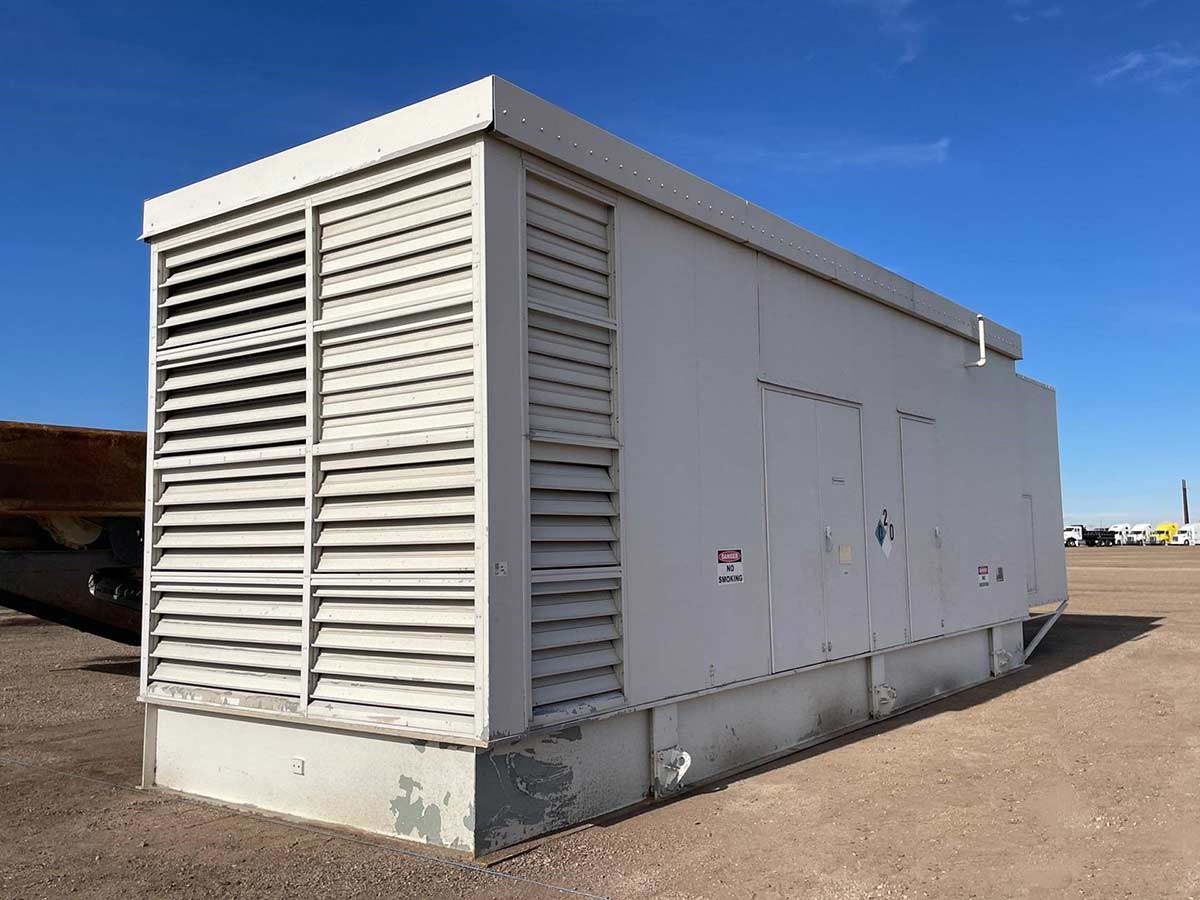
When considering what type of generator you need for your job site you will need to think about the power that is available and what sort of equipment you will need to power your worksite. We offer a wide range of generator sizes that will be sure to keep your worksite running in an emergency or for the duration of your project. In general situations, you will need at least a 5000 kilowatt generator to power a construction site, but you may need a different size (see generator options for your construction site) and you may need to do power calculations to find the right generator for your job site.
What Size Is Right For A Jobsite Generator?
Are you looking for a construction generator for sale? If so, it is important that you buy the right generator size. When considering the size needed for a job site generator, the most important factor to consider is your power requirements. Depending on the size of the job site and the type of equipment being used, the size of the generator will need to vary accordingly. For example, if you are using large power tools, then you will need a larger generator than if you are using smaller hand tools. Our team is here to supply your site with a range of sizes from 20kw to 65kw and over 2500kw.
Think About Fuel Source When Buying A Jobsite Generator
Additionally, consider the fuel source when choosing the size of the generator – larger generators require more fuel than smaller ones, so you may want to factor in the cost of fuel when selecting the size. Finally, consider the noise level of the generator – larger generators may be louder than smaller ones, so you may want to take noise levels into consideration as well. By considering all these factors, you’ll be sure to find the right size generator for your needs.
Are Trailer Generators Or Standby Generators Better On A Construction Site?
When it comes to a construction site, it is essential that the power remains on and the tools remain operational. To this end, the choice between a trailer generator and a standby generator must be made. Both have their pros and cons, and it can help to assess the needs of the construction site to make the best choice.
Trailer generators can be easily towed to any location, providing ease of use and mobility. This can be beneficial if the site needs to be moved often, or if the generator needs to be used in multiple locations. However, they can be noisy and require refueling every few hours.
Meanwhile, standby generators are more expensive but are quieter and require less maintenance. They can also provide higher power levels for larger construction projects. The main downside is that they can take longer to be put into operation, resulting in downtime.
What Are A Few Popular Work Site Generators
There are a lot of options available for generators that could bring power or backup power to your construction site. Whether you need to get electricity to power tools or something larger, a portable generator with a strong kw is important to the efficiency of your work. Diesel generators and natural gas generators are great options when you need to power a job site.
Here are a few popular generators for work sites:
- CATERPILLAR 3516B STANDBY DIESEL GENERATOR
- CAT 3516 DIESEL POWER MODULE
- CUMMINS QSK60G STANDBY NATURAL GAS GENERATOR
How Loud Can An Industrial Generator Get On A Construction Site?
The loudness of an industrial generator on a construction site can vary greatly. In many cases, it can be quite loud depending on the size and type of generator being used. Industrial generators used on construction sites can reach sound levels of over 100 dB, which is almost as loud as a chainsaw. In order to maintain a safe working environment, it is important for construction sites to be mindful of the noise levels produced by their generators and make sure to use sound-proofing material to help reduce the loudness. Keep in mind, for safety’s sake, it is important to keep the generator as far away from the workers and the public as possible.
What Size Of Generator Is Best For The Construction Industry?
In the construction industry, selecting the appropriate generator size is critical to ensuring seamless operations amidst power fluctuations or remote job sites. Larger construction projects, such as high-rise buildings or infrastructure developments, may require the robust power output of a 350 kW generator to sustain heavy-duty equipment, site lighting, and portable offices. These generators offer ample capacity to meet the diverse energy demands of large-scale construction sites, providing reliable power for extended durations. Conversely, smaller construction projects or temporary job sites may find that 150 kW generators suffice for powering essential equipment, tools, and temporary facilities. These generators offer a balance between performance and portability, making them suitable for medium-sized construction endeavors. Ultimately, the choice between a 350 kW generator and multiple 150 kW generators depends on the scale and duration of the construction project, with considerations such as power requirements, site logistics, and budget constraints influencing the decision-making process.
What Are The Best Industrial Generator Power Ratings for Job Sites?
When it comes to powering job sites with industrial generators, it is important to choose the right power rating, as this will determine the amount of power output available. The best industrial generator power ratings for job sites depend on the type of tasks being performed there. For instance, if the job site requires a large amount of lighting, then the generator should have a higher power supply. On the other hand, if the job site is only using small tools, such as saws and drills, then a smaller power rating. It is also important to consider the type of fuel used by the generator, as this will affect its efficiency and overall cost.
It is essential to ensure that the generator is correctly installed and maintained to ensure the best possible performance. Regular servicing should be conducted to identify and resolve any potential issues, as well as to check the fuel level and any other components. Additionally, it is important to consider the noise levels produced by the generator, as this could be a safety hazard on the job site. As such, choosing an appropriate model that is designed to operate quietly can be beneficial. Ultimately, the right industrial generator power rating and model will ensure that the job site runs smoothly and efficiently.
Is A Single Phase or Three Phase Generator Better For A Construction Site?
When it comes to choosing the right generator for a construction site, it depends on the specific needs of the project. If you are looking for a generator to provide enough power to keep lights, tools, and other machinery going, then a three-phase generator may be the better option. Three-phase generators are able to provide a consistent source of power with less load and are generally more efficient than single-phase generators. However, if you don’t need a large amount of power for your construction site, then a single-phase generator may be a better option. Single-phase generators are typically more affordable and easier to maintain than their three-phase counterparts. Ultimately, it comes down to what power needs you have for your project and how much you’re willing to spend.
No matter which type of generator you choose, you should always have it professionally installed for safety reasons. This is especially true for three-phase generators, which require more complex wiring than single-phase generators and can be dangerous if done incorrectly. Working with a qualified contractor ensures that your generator is installed properly and that all necessary safety protocols are followed. It’s crucial to also regularly maintain and service your generator (diesel or natural gas) to ensure its optimal performance and longevity, minimizing the risk of malfunctions during power outages.
The Role of 100 kW & 150 kW Generators in the Construction Industry
In the construction industry, 100 kW and 150 kW generators are pivotal for powering a wide range of equipment and ensuring seamless operations on job sites. These generators are ideal for medium to large-scale projects where reliable and consistent power is crucial. A 100 kW generator can efficiently support smaller construction sites, providing energy for lighting, small machinery, and hand tools. Meanwhile, a 150 kW generator offers more capacity, suitable for larger equipment like cranes, concrete mixers, and heavy-duty compressors. Their versatility and robust performance make them essential assets for construction teams, allowing them to work effectively even in remote areas without grid access. The choice between the two typically depends on the project’s scale, equipment requirements, and expected power load.
Essential Size Generator: Industry-Specific Calculation
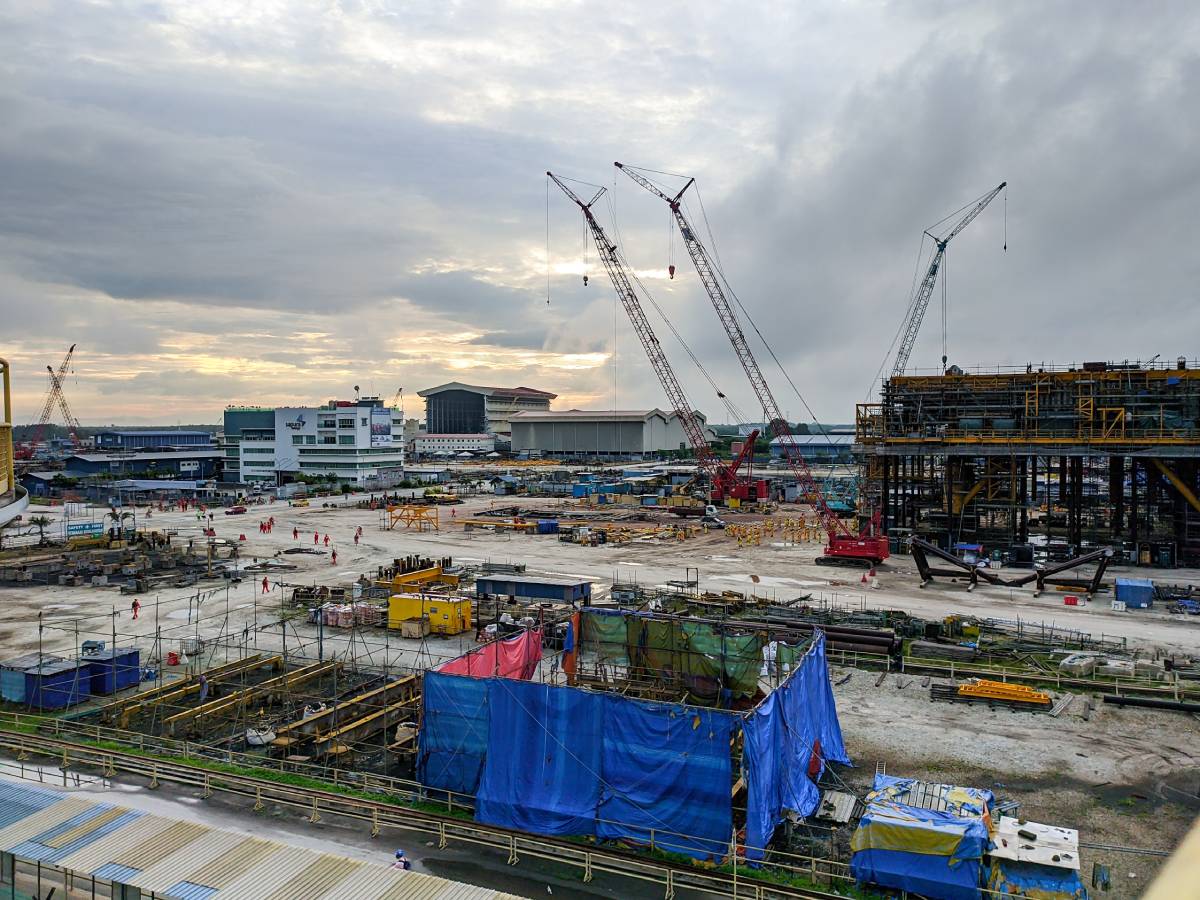 Turnkey Industries offers reliable used generators specifically suited for construction sites, ensuring consistent power supply and efficiency to meet the high demands of critical operations.
Turnkey Industries offers reliable used generators specifically suited for construction sites, ensuring consistent power supply and efficiency to meet the high demands of critical operations.When it comes to determining the right size for your projects or products, having a reliable size generator tailored to your industry can make all the difference. Whether you’re in manufacturing, construction, or another field, precise calculations are crucial for efficiency, cost-effectiveness, and success. This list provides industry-specific insights and calculations to help you find the essential size generator you need, ensuring your operations run smoothly and meet the highest standards.
- Hospitals- Industrial generators used for hospitals typically range from around 100 kW to 3,000 kW or more, depending on the size of the hospital and its specific power requirements.
- Data Centers- For data centers, the range of industrial generators tends to be quite substantial due to the critical nature of their operations and the varying sizes of data center facilities. 125 kW to 500 kW: Suitable for smaller data centers or server rooms within larger facilities. These generators can support essential systems during power outages or maintenance, ensuring minimal downtime. 600 kW to 2,000 kW: Commonly used for medium to large data centers with higher power demands. These generators provide ample backup power to sustain operations during extended outages or emergencies.
- Financial Institutions- Industrial generators used for financial institutions typically span a range of power capacities to ensure uninterrupted operation of critical systems and data integrity. 50 kW to 200 kW: These generators are suitable for powering small to medium-sized bank branches or financial service centers. They provide backup power for essential systems such as ATM machines, cash dispensers, security systems, lighting, and climate control to maintain basic operations during power outages. 200 kW to 1,000 kW: Medium to large generators are deployed at regional headquarters, data centers, or centralized processing facilities. These generators support critical infrastructure, including servers, data storage systems, network equipment, HVAC (heating, ventilation, and air conditioning) systems, and security systems. 1,000 kW to 3,000 kW: Large financial institutions with extensive operations or global reach may require high-capacity generators for their corporate headquarters or large-scale data centers.
- Telecom- For telecom applications, industrial generators typically cover a range of power capacities to support various infrastructure needs. 30 kW: These generators are suitable for powering small cell sites, remote radio towers, or rural communication centers. 40 kW to 150 kW: Medium-sized generators are commonly used for urban cell sites, regional communication hubs, or clusters of smaller installations. 150 kW to 500 kW+: Larger generators are deployed in major telecom facilities, data centers, or regional hubs.
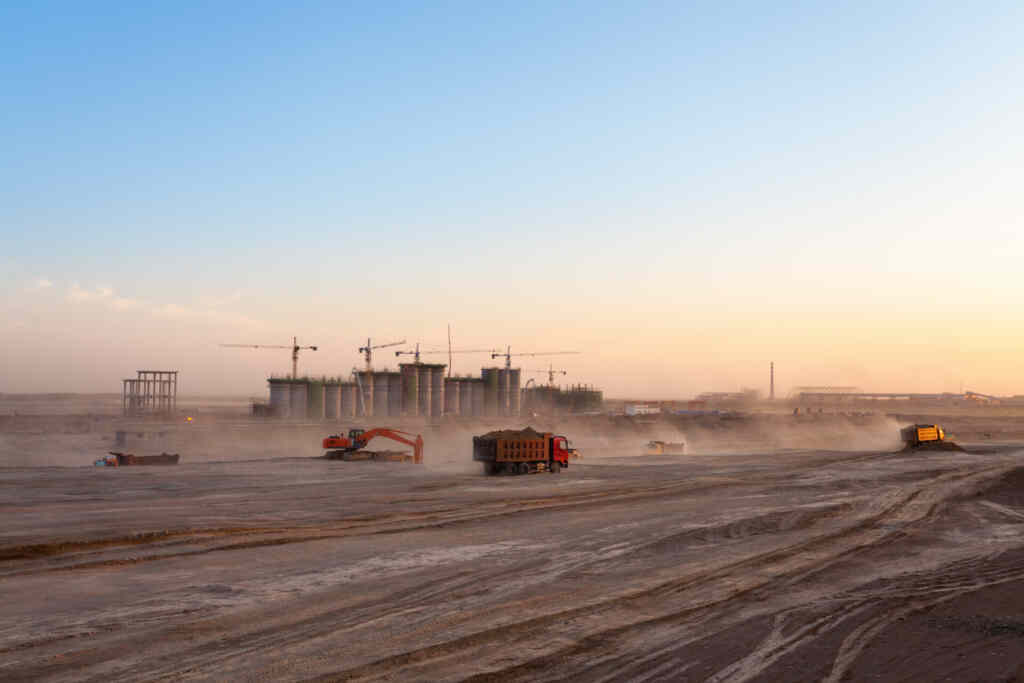





 Turnkey Industries offers a variety of high-capacity
Turnkey Industries offers a variety of high-capacity 